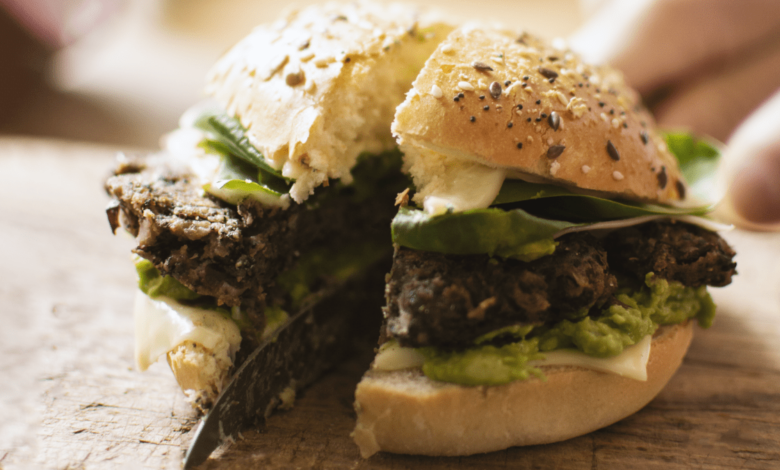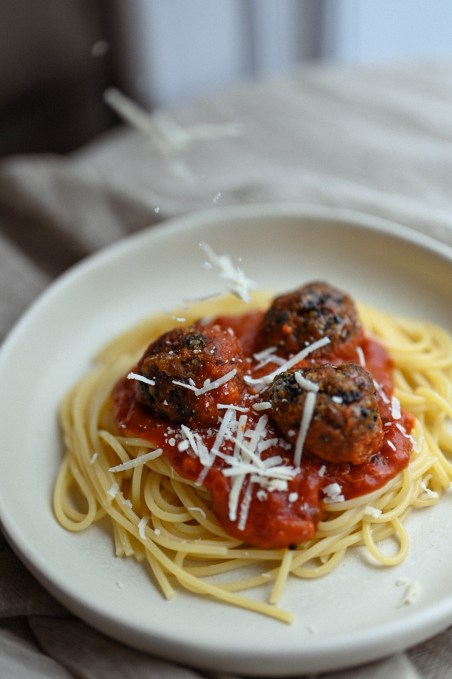Edonia grabs €2M to turn microalgae into less bitter-tasting ground meat alternative

As the world’s population continues to grow, the need to be able to feed everyone is something a number of entities are working on. Paris-based Edonia, is one of the startups working on creating protein ingredients using microalgae.
Edonia joins companies like Bevel, AlgaeCore Technologies, Algenuity and NewFish that are all tapping into the global market for commercial algae expected to be valued at $25.4 billion by 2033.
Now armed with €2 million ($2.1 million), the company is moving forward with producing plant-based ingredients from microalgae biomass generated from spirulina or chlorella that Valentin claims is more nutritious than meat, Edonia CEO Hugo Valentin told TechCrunch.
Edonia is Valentin’s second company. He was also co-founder of Ammi, a company that was also working on spirulina consumption. Prior to that he was an account director for consulting firm Uzik. He said while at Ammi he was convinced that mycology (the study of fungi) would play an important role in the current protein transition.
Edonia makes the protein via a unique microalgae transformation process called “edonization.” This transforms the microalgae biomass into a textured super ingredient with numerous taste, odor, texture, nutritional and environmental qualities.
“We want to solve the organoleptic (sense organs) aspects of mycology,” Valentin said. “Today, it’s mainly known as a green powder with a bitter taste. The goal of the technologies is to solve this problem.”
How edonization works
The edonization technique changes the color from green to a darker richer-looking brown. It converts the texture to “meaty-like tender grains” with aromatics similar to one that smoking or grilling would produce, Valentin said.

Edonia’s microalgae product replaces ground meat, like meatballs. (Image credit: Lilie Bedos + Edonia)
Edo-1 is the startup’s first product, which Valentin said offered an umami-like flavor and texture closer to ground meat than that of soy proteins. Therefore, it’s a good plant-based replacement for ground meat, he said.
In addition, the minimally processed Edo-1 is 30% protein, comprised of essential amino acids, and contains other minerals and vitamins. That’s a bit higher percentage of protein than, for instance, ground beef, which can be around 20% (a large percentage of beef is water).
At a time when 34% of greenhouse gas emissions are generated by our food, Valentin also wanted to show that microalgae could reduce emissions. Edonia worked with university institution AgroParisTech to develop a Life Cycle Assessment that shows Edonia’s product could emit 40 times less carbon dioxide than its ground meat equivalent, and three times less than its textured soy equivalent.
Scaling up
Edonia is already able to produce a few kilograms of Edo-1. Valentin’s next goal is to scale the technology so it can deliver thousands of tons of the product to the market. Valentin expects to have a full-scale factory in about two years.
The company is also working with food manufacturer beta testers to develope recipes and food products using Edonia’s ingredients.
“We plan to go to the market by the end of this year with commercial proofs of concepts,” he said.
Edonia isn’t subject to the “Novel Food” category regulations, so it does not need French or European Union authorization to go to market. This will enable it to commercialize its production more rapidly. The official launch will be European, and then the startup aims to quickly expand to other continents, like Asia and the United States, through strategic partnerships, Valentin said.
Getting Edo-1 on the plate
The €2 million investment was led by French venture capital firm Asterion Ventures, which recently invested in another “green” company Diamfab. BPI also participated. The capital will enable the company to finance a pilot plant and extend its R&D, Valentin said.
The quality of Edonia’s product has already been tested and approved by French R&D chef Laurent Sicre, whose culinary creation and development expertise is recognized by food industry professionals and restaurateurs.
In addition to meat alternatives, Valentin said Edo-1 can improve nutrition for other products, including bread, cakes, cream and cereal bars, without impairing the eating experience.
Edonia is now setting up its industrial demonstrator and Valentin expects to be able to execute at an industrial scale beginning this summer. The next step is to secure additional letters of intent for food makers to go to market with a product containing Edo-1.
Source link




